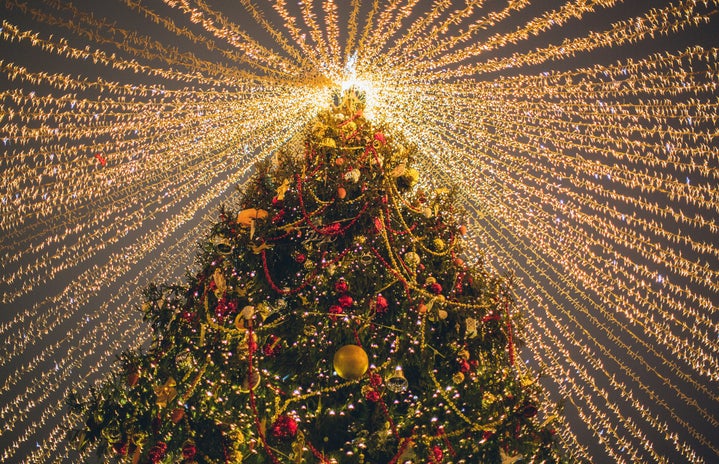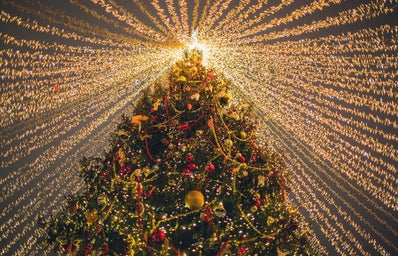The holidays are one of my favorite times of the entire year – they are jam-packed with celebrations, such as Christmas, Hanukkah, Kwanzaa, and New Year’s, to name a few. On top of that, my birthday fits within December (go Sagittarius!), and the end of the school year makes it an especially memorable time when you can go home with your family and spend the winter and the various holidays with your loved ones.
However, in the United States, Christmas is the main holiday that is celebrated and recognized. Almost everywhere you go, you’ll see images of Santa, Christmas trees, and in some areas, depictions of Jesus, either resurrected or on a cross. It became very blatant to me that Christmas was overshadowing the other religious holidays and festivities of the season.
As someone who was raised by Muslim parents, it comes off as strange to see so much blatant representation of a particular religion, especially in the United States. Growing up, my parents refused to have images of Santa depicted in our house, and our small tree in our living room was always referred to as a ‘New Year’s Tree’. I had to learn about Christmas and its background through media, school, and my peers, and I began having an understanding of how Christianity was the religion behind the holiday. However, I also began having a strange association with the holiday season, because I felt like I wasn’t meant to be a participant due to my own religious background.
My isolation from the holiday season, I later found, was the lack of a celebration for my own religion. Ramadan, Eid al-Fitr, and Eid al-Adha are all Muslim holidays that are celebrated at various points in the calendar year, based on the Islamic calendar. However, most of the religious holidays that I’ve mentioned here are based on the Gregorian calendar, which makes a lot of sense as to why so many of them are condensed between November and January. As I grew older, I understood it wasn’t Islam that wasn’t included, but that its celebrations are just at other times. Still, this didn’t help my relationship with the holidays and feeling excluded.
It wasn’t until I saw how people were celebrating Christmas that I understood that it mostly wasn’t an exclusionary practice. Many activities associated with the holiday – gift-giving, gingerbread houses, themed parties – were activities you could do regardless of whether you were religious or not. Furthermore, my friends who celebrated Christmas were extremely welcoming. I was under the impression that many would be gatekeeping their festivities, but I was completely wrong. Celebrating Christmas becomes more of celebrating the overall holidays and the joy people have during the end of the year, rather than the birth of Jesus. In this light, I felt more accepted into celebrating the overall holiday season.
Of course, this is not to say that religion is not a part of Christmas celebrations – I completely understand the religious significance tied to the holiday and the importance it holds with many people. In this regard, I became more willing to celebrate the religion in its beautiful capacity. All religions should be celebrated, and Christmastime to me was a time when I could admire the music, stories, and cheer people associated with Christianity and Christmas – furthermore, it didn’t hinder my own religious leanings. Instead, it made me more appreciative and accepting of all the religious holidays that happen so close to one another.
All in all, the holiday season was a time that I had to get accustomed to, yet it became one of my favorite times of the year. Even though I was raised Muslim, I was able to appreciate the holidays and Christmas, even though I hold no religious ties to the holiday. Instead, I’ve fallen in love with the festivities and happiness that people show and exhibit during the holiday season, and I find it incredibly endearing to see how the holidays are each year.


